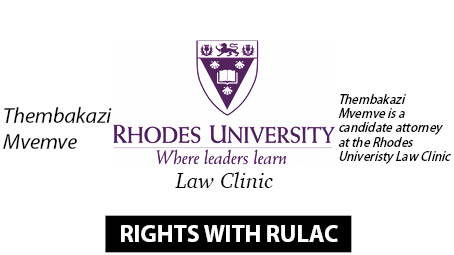By RYAN MCDONALD
Marriage marks a significant moment in the lives of a couple that choose to enter into it. Given the deeply personal nature of getting married, it is easy to lose sight of the legal implications.
Of particular importance is the consequence of getting married in relation to your estate. In other words, what will happen to all the things that you and your partner own and owe, both prior to and during the course of the marriage, when your marriage is eventually dissolved by death or divorce?
This is governed by the matrimonial property regime a couple enter into. It is vital that both parties to a marriage obtain unbiased professional advice as to the advantages and disadvantages of the available matrimonial property regimes. This article will elaborate on the three matrimonial property regimes that could apply to a marriage.
The default matrimonial property regime is the so-called ‘in community of property’ regime. This is the matrimonial property regime that will apply in the ordinary course of events. Should a couple wish to opt out of this system then they will need to do so explicitly via an antenuptial contract (ANC). The easiest way to think of marriage in community of property is that everything is shared. This means that each spouse is a co-owner of a joint estate in undivided and divisible half-shares. As a general rule, everything that either spouse owns or owes prior to the marriage becomes part of this joint estate. The same applies to assets and debts that are accumulated during the course of the marriage. Upon dissolution, liabilities are settled from the joint estate and the remainder is distributed equally between the parties.
It should also be noted that a spouse in a marriage in community of property has limited capacity to act in relation to certain transactions. An example of this would be the selling of immovable property, where written consent from the other spouse is required. The primary downside of this regime is that the insolvency of one spouse will necessarily lead to the other spouse also being insolvent.
The second matrimonial property regime to consider is the so called ‘out of community of property’ regime. As already mentioned, a couple seeking to deviate from the default in community system must do so explicitly via an ANC. Should a couple wish to enter into a property regime that is totally out of community of property, they will also need to explicitly exclude the accrual system (more on this later). A marriage out of community of property can be thought of as a ‘share nothing’ marriage. No joint estate is created when the parties get married and as such there is nothing to divide when the marriage is dissolved, as each party already technically has their own, separate estate.
An ANC must be signed prior to the marriage by both parties and an attorney who is also a notary public. Once this is done, the ANC must be forwarded to the deed’s office in the area where the parties reside to be registered. Registration must be affected within three months of the date it was signed by the notary public.
The final possible matrimonial property regime is ‘out of community of property, with accrual’. As with out of community of property, this regime must be entered into via an ANC. It can be thought of as “share some things, eventually”. When the marriage is dissolved, the growth of each spouses’ estate is calculated. The difference in the Rand value of the growth is then worked out and half of this amount is given to the spouse whose estate grew the least.
This system is arguably the most equitable of the three as it ensures that the spouse who takes on a non-economically active role in the relationship is protected (whilst s/he may have an extremely important role in other respects). Unfortunately entering into an ANC has a cost implication (consulting with a notary attorney and getting the ANC registered at the deeds office), but this might be a small price to pay in the long run.
RHODES UNIVERSITY LAW CLINIC HELPING YOU
The Rhodes University Law Clinic strives to improve access to justice through the provision of free legal services to indigent people in most areas of law. In addition to its New Street offices, Law Clinic staff are available to clients at the Assumption Development Centre (Konongendi), Nceme Street, Joza, every Thursday from 9am-12pm.
The Law Clinic also provides monthly workshops on a wide range of topics in order to raise awareness of people’s rights. The workshops are conducted by staff of the Rhodes University Law Clinic at various locations around Grahamstown. For more detail, please contact the Assumption Development Centre (Konongendi) or the Rhodes Law Clinic:
Rhodes University Law Clinic
Telephone 046 603 7656
lawclinic@ru.ac.za


